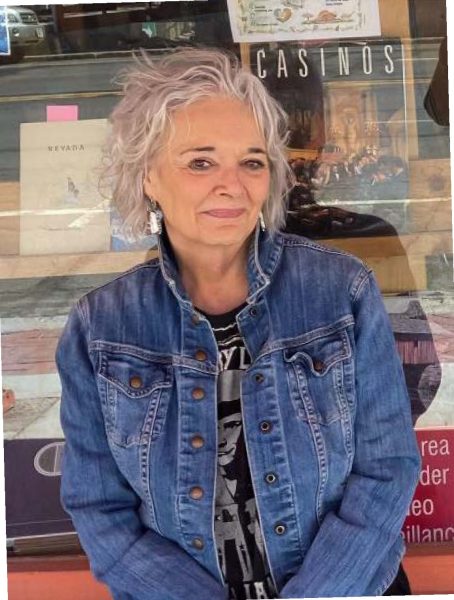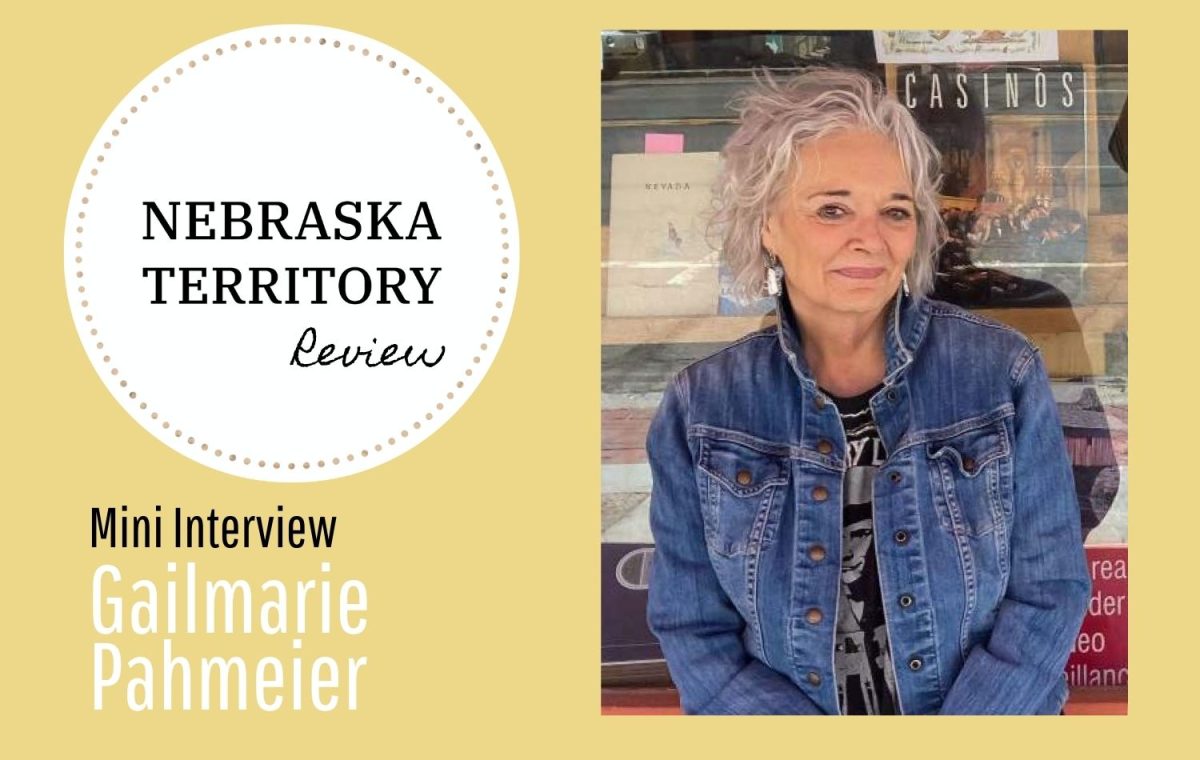How did you get into writing? Do you remember your first piece of writing?
Well, that’s a long story, but I’ll start by saying that I was always something of a storyteller. My mother has memories of me as a small child hanging out around the dog pens. She would watch from the window, curious and a bit concerned: who was I talking to? The dogs? I told her I was talking to my “friend,” imaginary of course, and we were having a great time together. Years later in grade school, I took up writing as a way to be heard; I was a shy kid and although my grade school was quite small, I was intimidated by kids who were loud and confident. Writing stories was how I found a voice. My best friend, a girl named Laurie, could draw quite well, and we wrote and illustrated books we stapled together and sold, along with glasses of lemonade, on a picnic table we set up along Route 66, which ran near our houses. Our titles included Brenda Gets Married and Down on the Farm. Most of our books were bought by kind neighbors who probably preferred the lemonade, and those neighbors returned the books to my mother. Years later, after I’d published my first book, my mother boxed those stories and sent them to me. I treasure that box. It holds the beginnings of a life given to story and character.
What was it like being the Nevada Poet Laureate?
Serving as the Poet Laureate of Nevada was the most incredible honor. I served the City of Reno as its inaugural Poet Laureate from 2015-2017, and that, too, was rich and rewarding, but when the governor’s office called to tell me I’d been selected to serve at the state level in 2021, I was floored. I was in my last semester of teaching at the University of Nevada, Reno, and I was uncertain about what would be next. And here was something truly new and challenging. Nevada had not appointed a Laureate in 50 years, and to be the first to hold this position after such a long drought was, at least at first, truly frightening. But I jumped in, traveled extensively throughout our large state, giving readings and workshops and talking about the art of storytelling. For my special project, I created an online epistolary poetry project called Nevadan to Nevadan, which asked residents of our state to write a letter to someone who needs to hear what they have to say about being a Nevadan. We received over 250 poems! I was also fortunate to be selected as a Laureate Fellow by the Academy of American Poets, and the funding that came with that award made travel and publication of the online anthology possible. We were also able to secure a theatre artist who wrote a readers theatre script using lines from all the submissions, and we performed that program to an enthusiastic audience. The readers came from all sorts of backgrounds: education, politics, arts, and tribal communities. I see now that I’m going on a little long here; the short answer should’ve been that serving as Nevada’s Laureate was perhaps the highlight of my work with communities and the literary arts. Here’s a link to the online anthology, if you’re interested: https://www.nvartscouncil.org/nevadan-to-nevadan-gallery/
How do you think teaching writing has affected the way you write?
I spent most of my teaching career in creative writing workshops, and I thought of myself as the coordinator of the classroom because I learned as much from my students as they learned from me. The best workshops contained students from a variety of backgrounds, identities, genders, and ages—the youngest university student I worked with was 17 and the oldest was over 80! I’m not sure how these amazing people affected my writing, but they did affect my approach to art. Everyone present worked to produce something that mattered, and if I’m expecting the students to do that, I better do it too. I think that workshop coordination is a way to recognize that we all need a prompt every now and then—writing is magical, yes, but it’s also hard work. If a workshop is going well, each participant offers suggestions and constructive critical responses. I think the students kept me honest and focused. Not sure that I’ve answered your question, but let’s just say that when we’re in a community of people who respect what we’re trying to do, the world feels a little less scary, a little safer.
What writers have inspired you the most?
I know this question should be easy to answer, but it’s not! My late mother-in-law used to say that her favorite child was whichever one needed her most at that moment in time, and I think I go to writers when I need them for some reason, need to hear their language, savor their stories. But a few I return to are Richard Hugo, Lisel Mueller, W.B. Yeats, Miller Williams, Kim Addonizio, Roy Bentley and Dorianne Laux. I love good stories; I just finished Lucia Berlin’s A Manual for Cleaning Women and Willy Vlautin’s The Horse. And songwriters too inspire me—Kris Kristofferson, Nanci Griffith, Paul Thorn, Rosanne Cash, so many others. This list of names, of writers whose work touched me in some significant way, well, it’s long.
How did your book Of Bone, of Ash, of Ordinary Saints come to be?
I’ll try to skinny down this answer. In 2017 I received a Major Project grant from the Nevada Arts Council, and my project was to document my experiences in Nevada state parks by spending 2-3 day residencies in as many of our parks as I could squeeze in—I was still teaching at that time. I bought a 13-foot trailer with the project funding and hit the road during summers and school breaks, eventually visiting about 13 of our state parks. I listened to people talk, to rangers and campers and people who worked and lived in the towns surrounding the parks. I studied each park’s history and its terrain, and out of this study and observation, a series of poems came to life. The manuscript itself was a journey into both imagination and observation, which is what I think most stories and poems really are. I thought the final draft would be of interest to Nevadans primarily, but when Chad Christensen (who I think is one of the coolest dudes on the planet) took a look at the work, he thought it would earn a larger audience, and he was right on. I’m grateful for his work and that of everyone at WSC Press for bringing the book into the world. Thank you all!
What inspires your writing?
Reading. Listening to music. Walking the dogs in the mountains or around the block. Thinking about people I once knew and wonder or worry about. Thinking about people I don’t know and wonder about—the harried waitress in the diner, the nurse in the oncology department. I think that as long as we try to be present in our daily life, there’s always something to write about, some story that wants to be told. We just have to pay attention.
What is the hardest thing about writing, and how do you work through it?
The hardest thing is getting started. It’s still a scary thing for me to see a blank page or screen. But I tend to work from prompts I give myself, and that eases me into the story I need to tell. For example, the other day I dropped a glass, and it shattered on the tile floor, and suddenly I remembered when my third grade teacher dropped a boy’s Christmas ornament and it shattered, which brought him to tears. He’d brought the ornament from home for our classroom Christmas tree, and his mother didn’t know he’d taken it. My prompt: what happened to Dennis? What else has shattered in his life? What has been redeemed? Of course, this prompt just gets me going; it’s the trigger, but what’s generated is often a complete surprise, and sometimes my Dennis is no longer there.
Are you working on anything currently?
Always trying to get something on the page. I just finished (well, maybe?) a manuscript that takes household tools as triggers into memories and imagined contexts. Saying this out loud sounds kooky, so I’ll just stop here!
What advice would you give to aspiring writers?
Make the time to make your work. Don’t let anyone steal that from you. The dog will need its walk, but the dishes can wait. Read widely, both classic literature and contemporaries. Don’t be intimidated or try to sound like anyone other than you. Dig deep. Say something true, something that rings true to your ear. Think concretely. Detail matters.
Is there anything else you would like to add?
I’ve gone on too long here. But thanks for these questions. You’ve helped me think about something I might need to say. And it might begin with Dennis…
 About the Author
About the Author
Gailmarie Pahmeier, now Emeritus faculty, taught creative writing at the University of Nevada, Reno. Widely published, she’s the author of three chapbooks and three full-length collections of poetry, the most recent being Of Bone, Of Ash, Of Ordinary Saints (WSC Press). In 2015, she was appointed Reno’s first Poet Laureate, in 2016 she was inducted into the Nevada Writers Hall of Fame, and in 2017, she was selected as Outstanding Teacher in the Humanities. In 2021, the governor of Nevada appointed her Poet Laureate, State of Nevada. In 2022, she was selected as a Laureate Fellow, Academy of American Poets.




